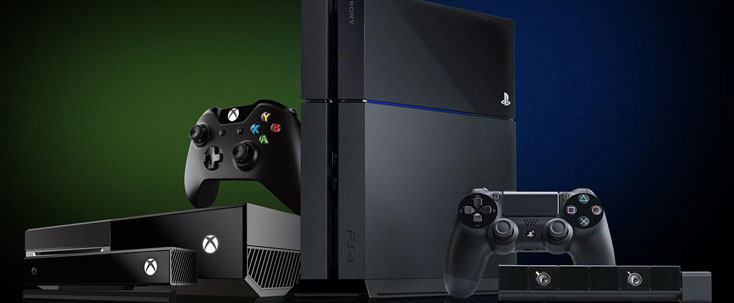Have you ever felt like you’re yelling into the wind? You have if you’ve been involved in any “flame war” related to PS4 vs Xbox One sales or the consoles’ technical specs. The yelling is always overblown, and the disagreement is universally pointless. And never has that pointlessness been so evident than in investors’ sentiment over Apple Q3 iPad sales.
The Cupertino company reported Apple Q3 iPad sales in the 12 million unit range, while consumers bought approximately 39 million iPhones. Those totals led to year-over-year increases for both revenue and profit, with Apple posting revenue of $42.1 billion (up from $37.5 billion) and a net profit of $8.5 billion (up from $7.5 billion) during the quarter.
Yet pundits are still saying “iPad sales weren’t as stunning ” as they’d have expected.
I’ve been a gamer since the ’80s, so I’m inclined to think the industry is hotter, more fashionable and more mainstream than it’s ever been. I’m biased, and I’m not above admitting it. But sales results like Apple’s and comments like the pundits’ make me realize just how fringe the video game industry still is.
Have the PS4 and Xbox One been mentioned on pop-culture phenomenon Big Bang Theory? Yes. Have new games sold at rates enough to be labeled the biggest entertainment launch ever? Yes. Has the PS4 sold faster than any console before it? Yes.
And yet those 12 million-plus PS4 sales everyone’s celebrating, that huge figure that took Sony only about nine months to achieve, is the same number of iPads that Apple sold. In one-third the time. And that disappointed tech pundits.
The most recent argument regarding PS4 vs Xbox One hasn’t been tied to sales. By all accounts, Sony’s left Microsoft in the dust and will be doing so for the foreseeable future. No, “hardcore gamers” have instead moved on to such socially important arguments as a console not being able to hit and maintain 1080p graphics, or about new add-on content that’s exclusive to one system for a week.
And you wonder why console gaming is still fringe?
Even without the Kinect 2.0 or the PlayStation Camera, these are expensive pieces of hardware. So are the new iPhones and iPads, though you can buy them discounted through certain wireless carriers. The difference is that the iPads and iPhones serve multiple core functions, whereas consoles play games and movies and let you watch TV. Funny, but Apple’s devices allow that too.
At their core, the home game consoles are just that: gaming devices. We all — and I include myself in that statement — tirelessly debate the merits of each system as if our social fabric depended on it. But this stuff doesn’t really matter. Why do people choose to play online multiplayer games without a headset? Because of the asshats. Why are gamers perceived as nerdy mouth-breathers (Sheldon) at best, or as Dorito-addicted adults who live in their parents’ basements at worst? Because of arguments like the 1080p ones, and because mainstream” consumers want to do more than play games.
Peggle, Bejeweled, Plants vs. Zombies, Candy Crush, Angry Birds … these are some of the most popular games out there. They’re all on iPhones and iPads. They’re all playable in bite-sized chunks. And they all exist on platforms that serve multiple non-gaming purposes every hour of every day.
The latest game consoles have been big sellers, but only by the industry’s own historical barometer. In the grand scheme of technology and entertainment, even the hot-selling PS4 would be judged as a “disappointment” in the mobile phone or tablet category.
Stereotypes be damned, just looking at the sales figures compared to other vertical markets and analysts’ response to those sales shows you how little video games matter to “mainstream” consumers. Consoles have their merits, but at the end of the day, they’re still a luxury item at most and a fringe piece of technology at least. Rather than argue about the importance of 1080p, shouldn’t we be debating the best ways to improve our industry’s profile among people who don’t currently value consoles as highly as the rest of us?

